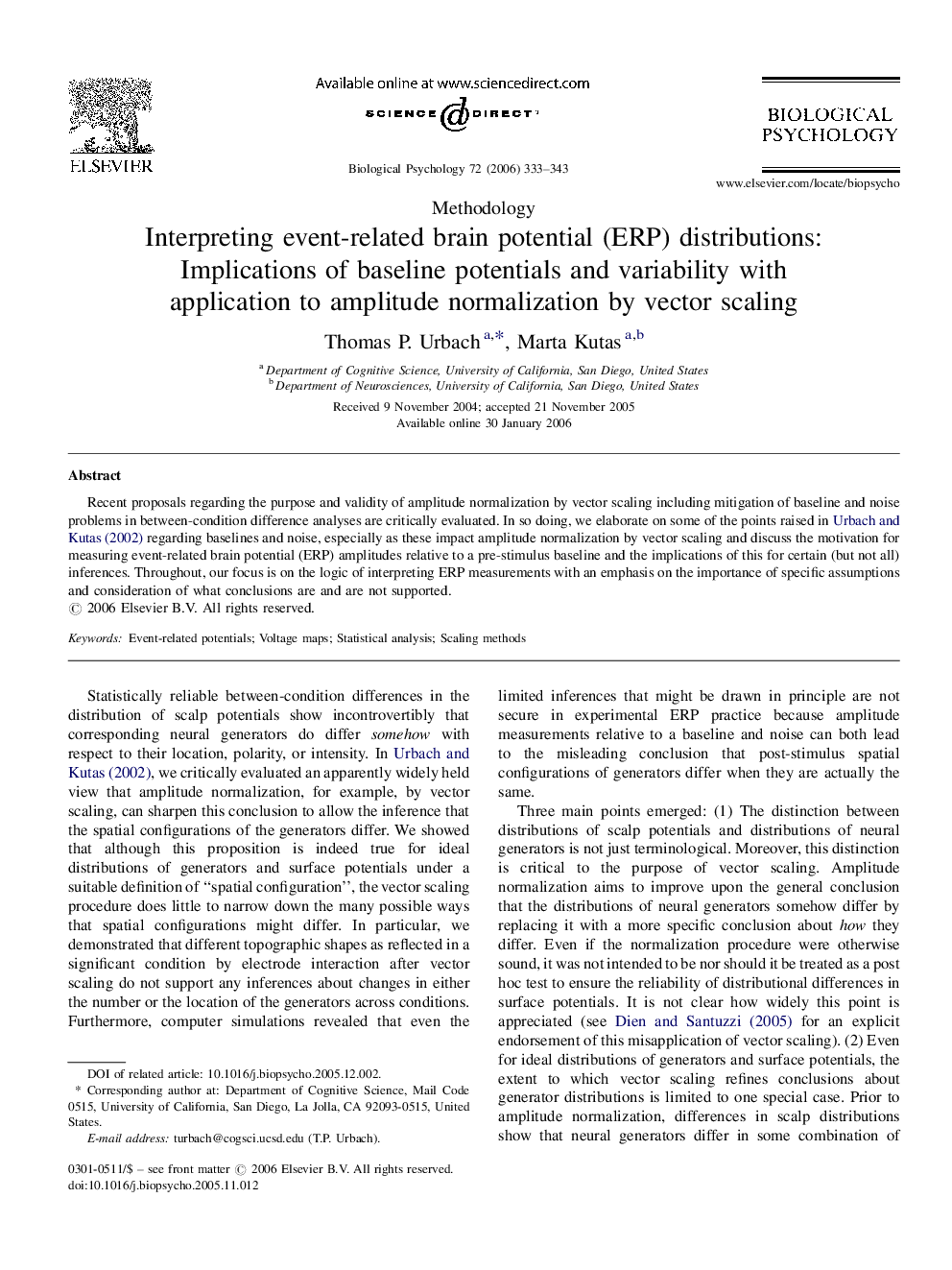| Article ID | Journal | Published Year | Pages | File Type |
|---|---|---|---|---|
| 921838 | Biological Psychology | 2006 | 11 Pages |
Recent proposals regarding the purpose and validity of amplitude normalization by vector scaling including mitigation of baseline and noise problems in between-condition difference analyses are critically evaluated. In so doing, we elaborate on some of the points raised in Urbach and Kutas (2002) regarding baselines and noise, especially as these impact amplitude normalization by vector scaling and discuss the motivation for measuring event-related brain potential (ERP) amplitudes relative to a pre-stimulus baseline and the implications of this for certain (but not all) inferences. Throughout, our focus is on the logic of interpreting ERP measurements with an emphasis on the importance of specific assumptions and consideration of what conclusions are and are not supported.
